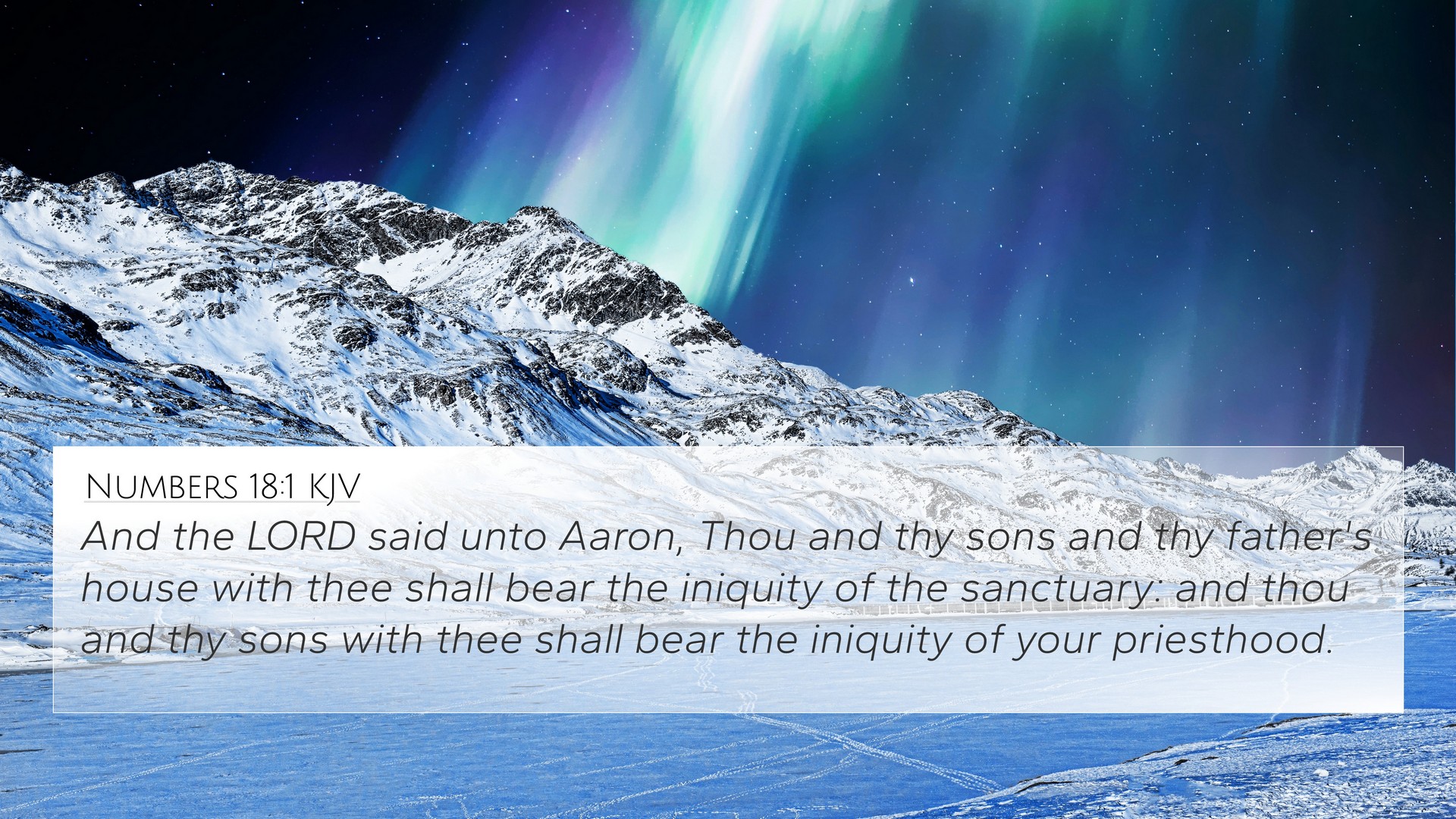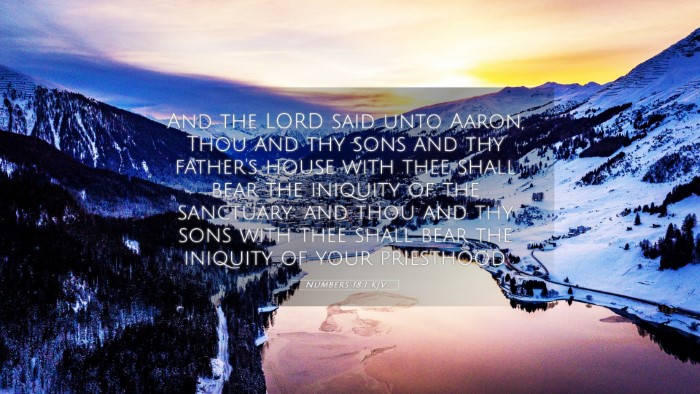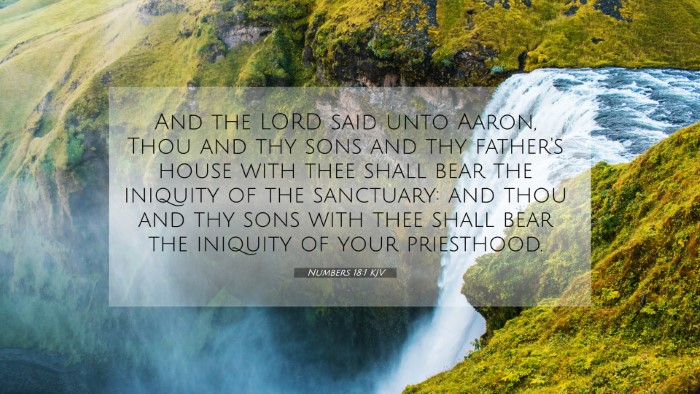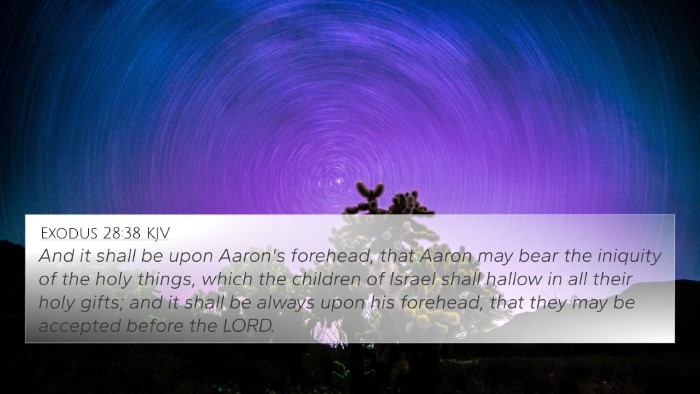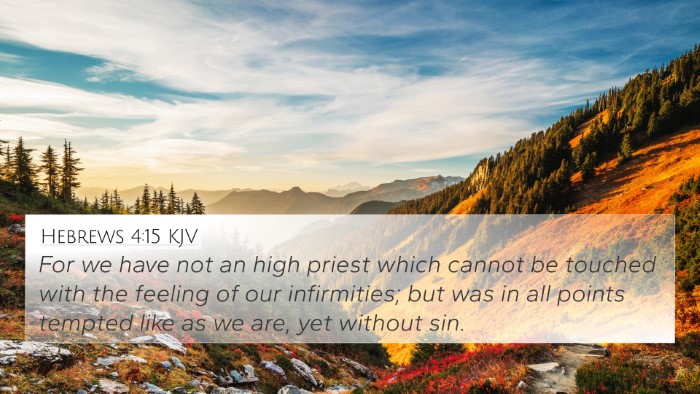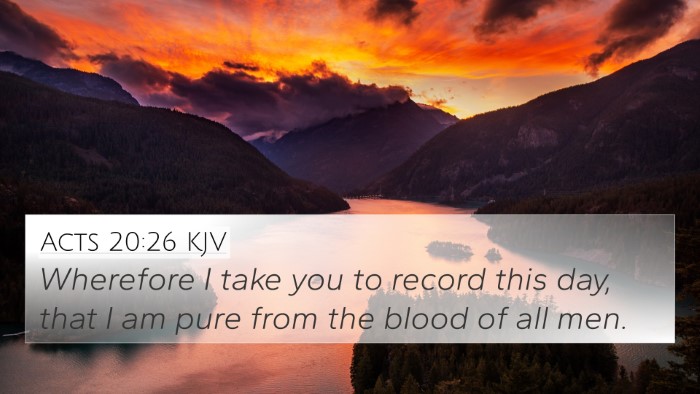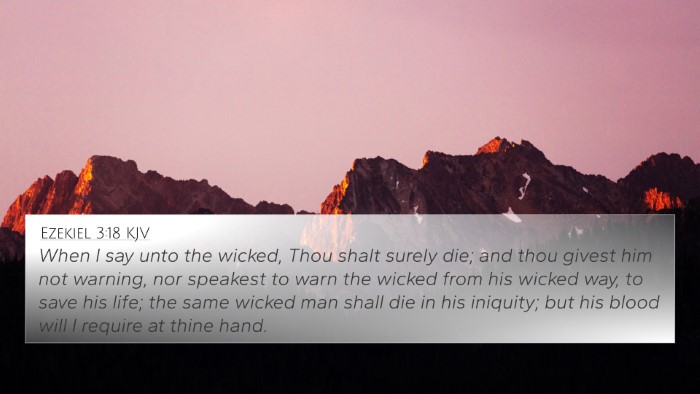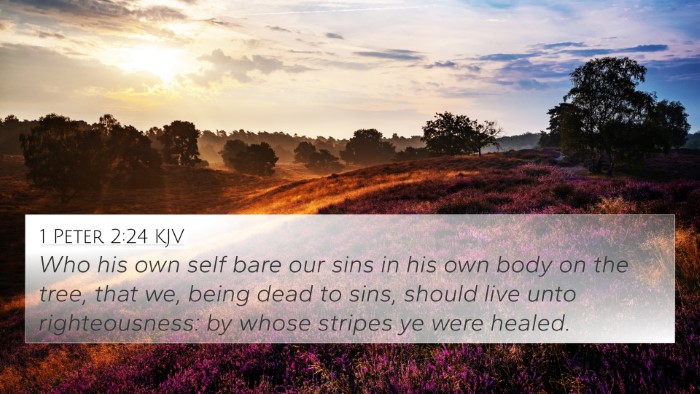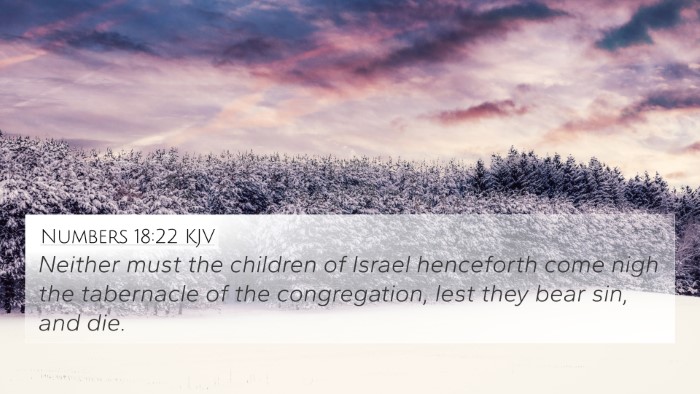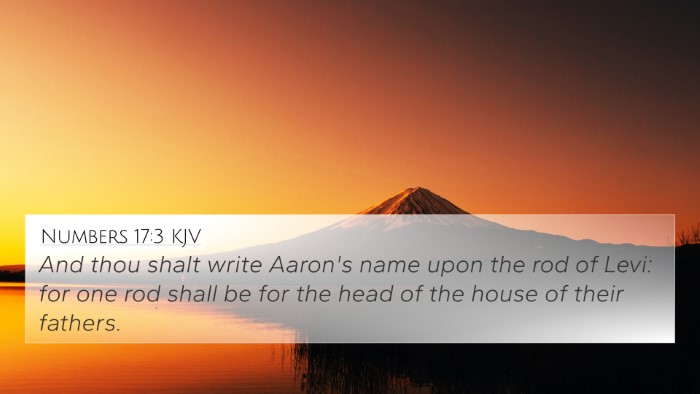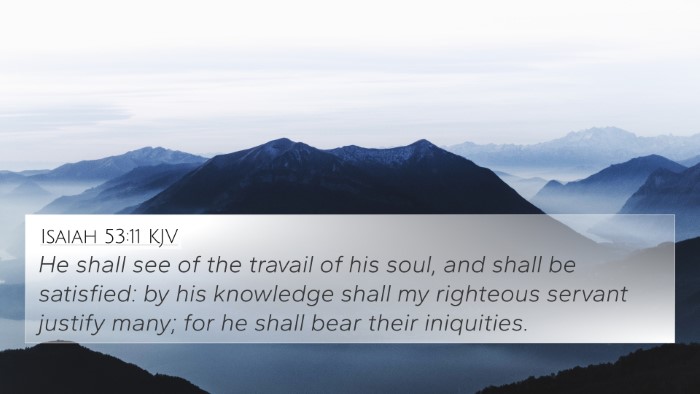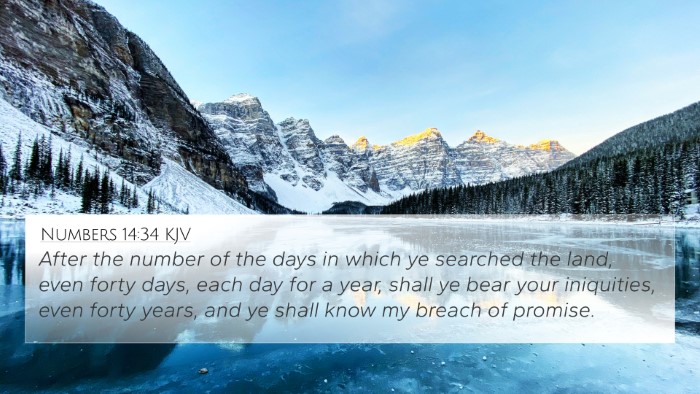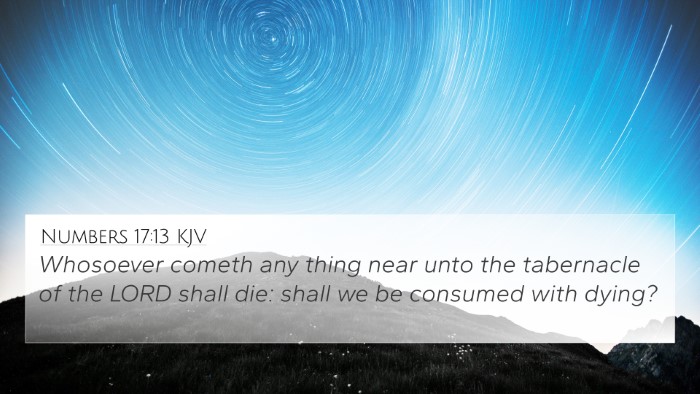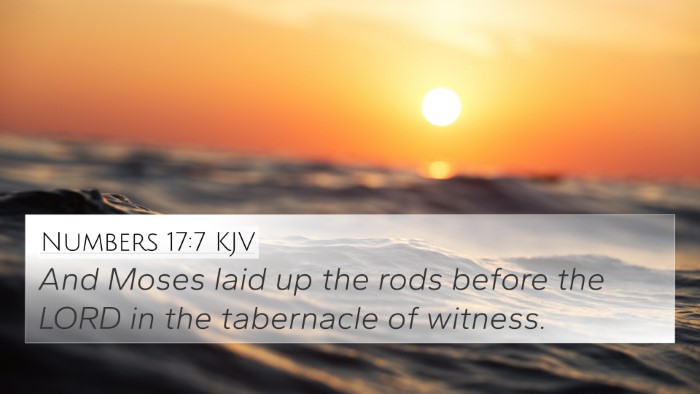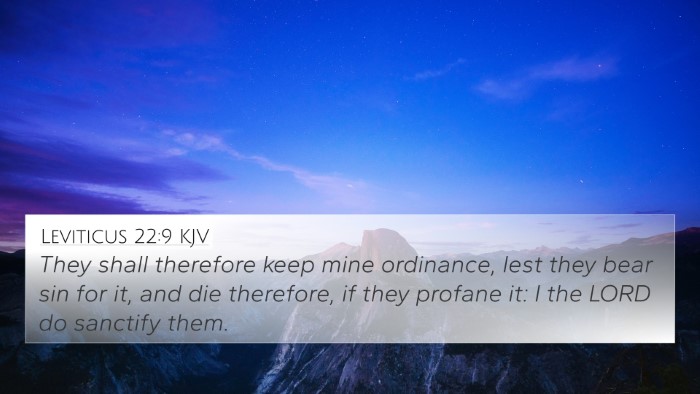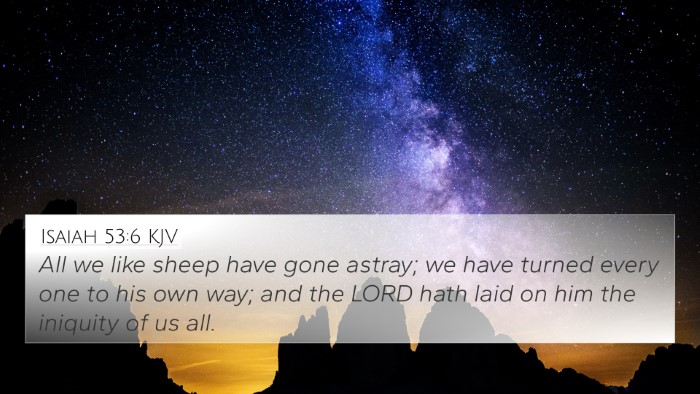Understanding Numbers 18:1
Numbers 18:1 addresses the responsibilities and privileges of the priesthood. Here’s a closer look at the meaning of this verse, informed by insights from public domain commentaries.
Verse Text
Numbers 18:1 (KJV): “And the LORD said unto Aaron, Thou and thy sons and thy father's house with thee shall bear the iniquity of the sanctuary: and thou and thy sons with thee shall bear the iniquity of your priesthood.”
Commentary Insights
Matthew Henry
Matthew Henry highlights the holistic and heavy responsibility that falls on Aaron and his sons as priests. They are not only upholders of the sanctuary but also bearers of its iniquities, which reflects the seriousness of their role in mediating between God and the people. This emphasizes that the priesthood is not just a position of honor but also one of accountability.
Albert Barnes
Albert Barnes elaborates on the implications of the priesthood's responsibilities. He discusses how Aaron's lineage is tasked with the sacred duty of ensuring that offerings and sacrifices are made correctly to maintain the holiness of the sanctuary. The verse underlines that the priest's role is to help guide the people spiritually and uphold the law, which comes with its own burdens of iniquity.
Adam Clarke
Adam Clarke emphasizes the concept of iniquity in this verse. He explains that it suggests a shared responsibility for the community’s sin before God. The idea is that the priesthood serves as intermediators, and their actions directly impact the spiritual state of Israel. Clarke notes the protective aspect of the priesthood, shielding the community from divine wrath through their service and sacrifices.
Key Themes and Connections
This verse brings forth several key themes concerning the priesthood's duty and its profound implications. It echoes throughout various parts of scripture, indicating a thematic connection across the Bible.
Connections between Bible Verses
- Exodus 28:1 - Details the consecration of Aaron and his sons, emphasizing their role as priests.
- Leviticus 10:17 - Highlights the seriousness of the priest's duty to maintain holiness in their ministry.
- Ezekiel 44:10-14 - Discusses the responsibilities and consequences of the priests in the future temple.
- Hebrews 5:1 - Explains that the high priest is appointed for the people in performing services to God.
- 1 Peter 2:9 - Refers to believers as a royal priesthood, linking New Testament believers with the Old Testament priestly function.
- John 17:19 - Jesus speaks of Himself as a sacrifice for the iniquity of others, similar to the priest's role.
- Romans 15:16 - Paul describes his ministry as a priestly duty relating to the Gentiles.
Thematic Bible Verse Connections
Through a comparative analysis of these verses, we find a robust inter-Biblical dialogue regarding the significance of priesthood and accountability before God. Each verse establishes a link that enhances the understanding of the priestly role across both the Old and New Testaments.
Tools for Bible Cross-Referencing
Utilizing tools for Bible cross-referencing enhances our understanding of complex themes. Resources like a Bible concordance or a Bible cross-reference guide can be vital in identifying these connections, allowing a comprehensive study of related verses.
Benefits of Cross-Referencing
- Enriched Understanding: Provides depth and context for verses and themes.
- Comparative Studies: Allows for detailed comparisons between texts, enhancing thematic analysis.
- Improved Sermon Preparation: Aids in crafting messages that convey interconnected biblical truths.
Conclusion
Numbers 18:1 serves as a critical reminder of the weight of spiritual leadership and its implications for both the leaders and the community. The insights from commentators like Matthew Henry, Albert Barnes, and Adam Clarke highlight the seriousness of the priestly role. Understanding this verse in relation to other scriptures establishes a profound theological framework that resonates throughout the Bible.
